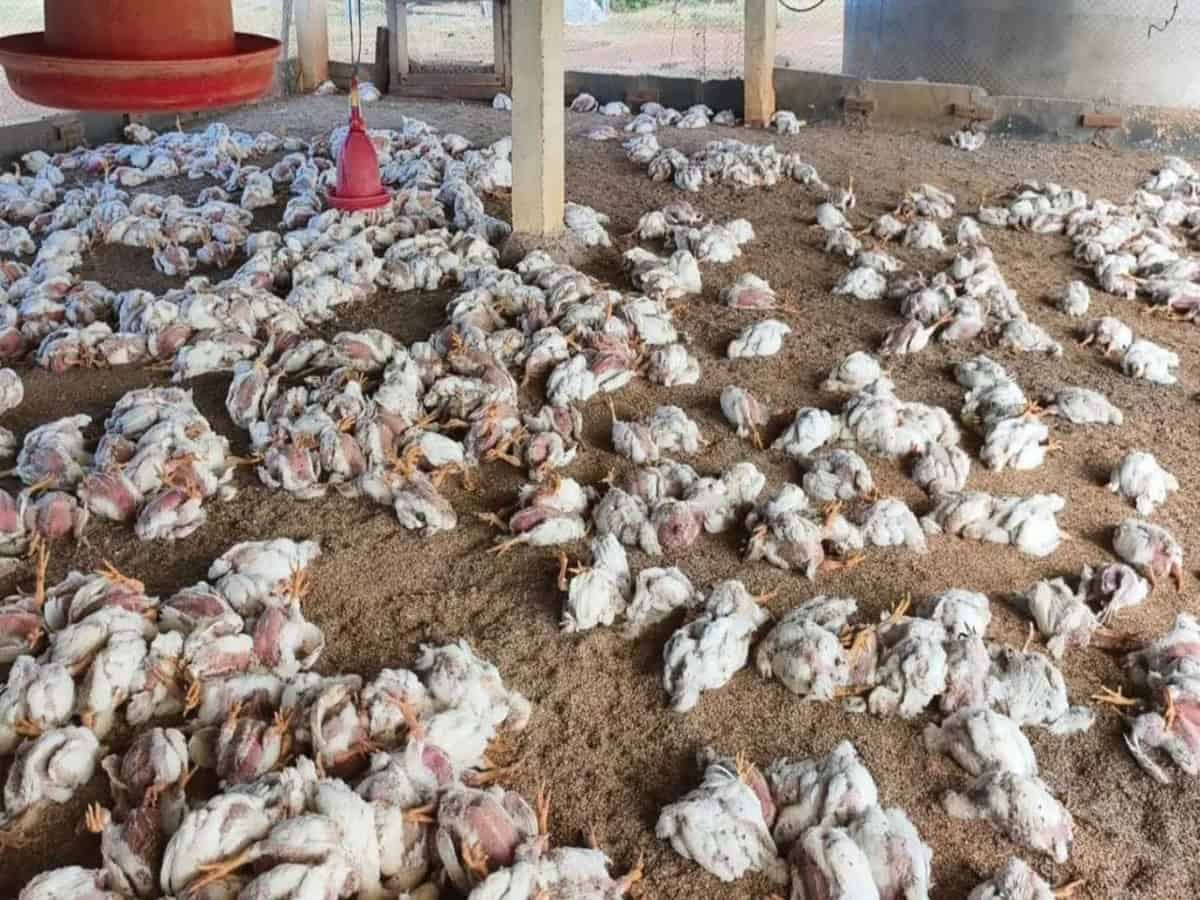
Hyderabad: Amid fears of bird flu in Telangana, officials from the Veterinary and Animal Husbandry Department have reported that 20,000 chickens died in the state in February.
However, officials clarified that the majority of these deaths were due to a lack of feed in poultry farms, with recent weather fluctuations also being cited as a contributing factor. Contrary to several reports, they stated that only 1,500 chickens had died due to bird flu.
‘Most chicken deaths in Telangana caused by malnourishment, not bird flu’
Additional director of the veterinary and animal husbandry department, Telangana, Dr Ch Malleswari, said, “The recent chicken deaths in Telangana’s Sangareddy and Medak, reported as bird flu deaths, were caused by a lack of feed and malnourishment. We visited the affected areas, and steps are being taken to educate farmers on curbing these deaths.”
“Most of the recent deaths have occurred due to lack of feed, while 1,500 can be attributed to avian flu,” said assistant director Dr Shakeel Ahmed told Siasat.com. He explained that private companies supply chicks to farmers, who are responsible for their care and nourishment. Once the chicks reach a certain age, they are handed back to the private firms in exchange for payment, usually Rs 5-6 per chick.
“At any given time, at least 5 percent of chickens are likely to die due to disease. Most poultry companies monitor the health of the chicks through vaccinations against Ranikhet disease, Gumboro, and infectious bronchitis,” added Ahmed.
No risk from consuming poultry
Addressing concerns over whether eating chicken or eggs can cause bird flu, Dr Ahmed reassured
that consuming well-cooked chicken and eggs does not cause the disease. “The people most at risk are those handling infected poultry, but even in such cases, the infection is not severe.”
A general physician from Hyderabad, Dr Sana Tahreem, explained that Avian Flu is caused by an RNA virus, type A of the influenza virus, which primarily affects domestic birds. “It is transmitted to humans only when they come into close contact with the bodily secretions or excreta of an infected bird,” she said.
She also outlined symptoms of bird flu in chickens, including high body temperature, diarrhoea, swelling, and increased nasal secretions, stressing that infected birds should be immediately isolated.
Dr Tahreem denied the possibility of human-to-human transmission of avian flu.
Why only chicken? Expert explains
Pulmonologist Dr Vyakarnam Nageshwar pointed out that bird flu is not restricted to chickens alone.
“There is a genetic and immunological basis for avian influenza infections in birds, but most people are unaware that mutations in H5N1 do not occur only in chickens. They have been observed in whales, fish, and pigeons as well,” he said.
Dr Nageshwar emphasised that pigeons, in particular, play a vital role as hosts for H5N1, allowing the virus to multiply and mutate. “This is significant for Hyderabad, where thousands of pigeons are present. Pigeons cause permanent, irreversible lung damage, leading to lung fibrosis,” he warned.
He explained that when people inhale pigeon feather dust or droppings, the allergen proteins enter the lungs, causing fibrosis. “If pigeons are harbouring the virus, their eye or oral secretions could contain avian influenza, allowing it to spread rapidly among humans,” he added.



